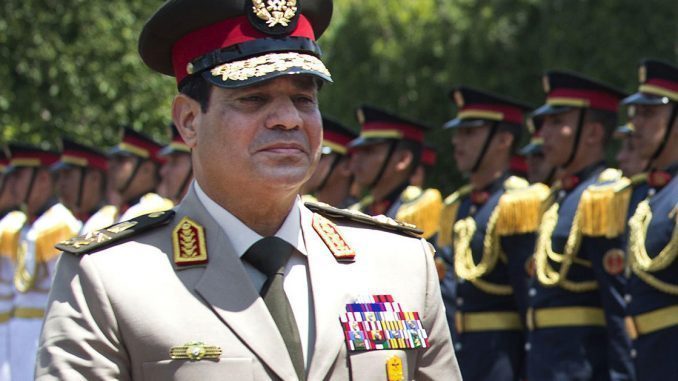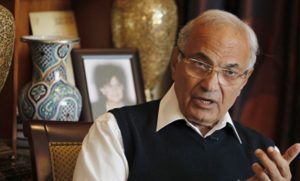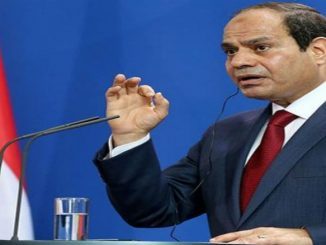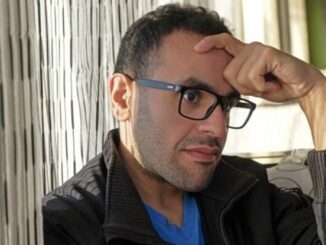
As the presidential elections scheduled to take place in 2018, the political arena seems empty of any candidates. Some declared their withdrawal from the elections, other hinted that he would exit the elections and the other was sent to jail.
Egypt’s former presidential candidate Amr Moussa and the last secretary general of the formerly ruling National Democratic Party Hossam Badrawi withdrew their candidacy from the presidential elections scheduled to start its preparatory work in February 2018.
On the other hand, an Egyptian military court sentenced a colonel to six years in prison on Tuesday after he announced plans to stand in the 2018 presidential election, his lawyer said.
Ahmed Konsowa was given the jail term for “stating political opinions contrary to the requirements of the military order,” according to his lawyer.
The colonel had announced he would be a candidate for president in video messages and a statement on Facebook on November 29.
He was also accused of “appearing on the social network website Facebook in military uniform, contrary to the requirements of the military order,” Heikal said.
Heikal said that the 42-year-old has been in custody since his arrest on December 2 as military prosecutors investigated the case.
In his videos, and without mentioning Abdel Fattah al-Sisi by name, Konsowa criticized Egypt’s policies in education, health and the economy.
Heikal has said Konsowa followed al-Sisi’s example in announcing his candidacy. Sisi was in uniform when he did so, before later resigning as defence minister.
In the same context, Egypt’s Former Prime Minister Ahmed Shafik hinted also for the second time his desire to exit the upcoming presidential race.
In a statement issued on Tuesday, Shafik said that he stands in full support of national stability.
He highlighted the presence of true state intentions for countering terrorism—a mission he said demands nationwide decisive unity.
In a speech he delivered in November from the United Arab Emirates, Shafik said announced his intentions to run for elections in light of Egypt suffering “many problems breaching all aspects of life and which have led to the collapse or deterioration of all public services.”
Shafik also campaigned against the frightening growth on national debt.
However, Shafik had appeared on Al Jazeera television to say he was being barred from leaving UAE. He said that the leaders of the United Arab Emirates were preventing him from leaving their country, seeking to block him from running again against Abdel Fattah al-Sisi.
“I was surprised to find myself prevented from leaving our sister country,” the former general, Ahmed Shafik, said in a videotaped statement from Dubai, where he has lived in exile with the support of the Emirates since he lost the 2012 Egyptian presidential election.

He added,” I reject interventions into the affairs of my country by preventing me from participating in a constitutional process and a sacred national mission.”
However, in a surprise move, Ahmed Shafik was deported from the United Arab Emirates and arrived in Cairo. He also appeared later in an interview on Dream TV which was his first public appearance since leaving the UAE.
His family said earlier they feared he had been “kidnapped”. Sources said he had been picked up by Egyptian authorities at Cairo airport.
Shafik dismissed reports he had been kidnapped.
Earlier after being deported to Cairo, Shafik’s family said that he had been taken from their home by UAE authorities and flown by private plane back to Cairo.
“We know nothing about him since he left home yesterday,” Shafik’s daughter May said before his reappearance.
She added,”If he was deported he should have been able to go home by now, not just disappear. We consider him kidnapped.”
The UAE, an ally of al-Sisi, has been officially silent on Shafik’s candidacy announcement.
Shafik, a former air force commander and government minister was seen as the strongest potential opponent of Abdel Fattah al-Sisi, who is expected to run a second term next year.
In fact, the Egyptian Constitution stipulates that the president shall be elected for a term of four years, beginning on the day following the expiry of his predecessor’s term, and may be re-elected only once.
Election procedures begin before the end of the term of the Presidency at least with 120 days, and the result should be announced at least 30 days before the acting president’s term comes to an end.
In June 2014, Abdel Fattah el-Sisi officially assumed office-this means that presidential elections should be scheduled to take place in February 2018. Elections will be held and the results will be announced by May of the same year.
Al-Sisi as a military commander led the ousting of Egypt’s first freely democratically elected president Morsi in 2013, before his own landslide election a year later.
Since then, pro-media supporters portray him as a key to Egypt’s stability following the upheaval that followed the 2011 Egyptian revolt that toppled president Hosni Mubarak.
However, his government is facing many critics due to the presence of unresolved crisis as fighting the stubborn Islamist militant insurgency in the Sinai region as well as also the enacted painful austerity reforms that he adopted over the last year to revive the economy.
As a result, critics have dented al-Sisi’s popularity in an obvious way, but at the same time, it seems that it made the autocratic military commander also feels threatened by the presence of any other competitors; especially those with a military background.



